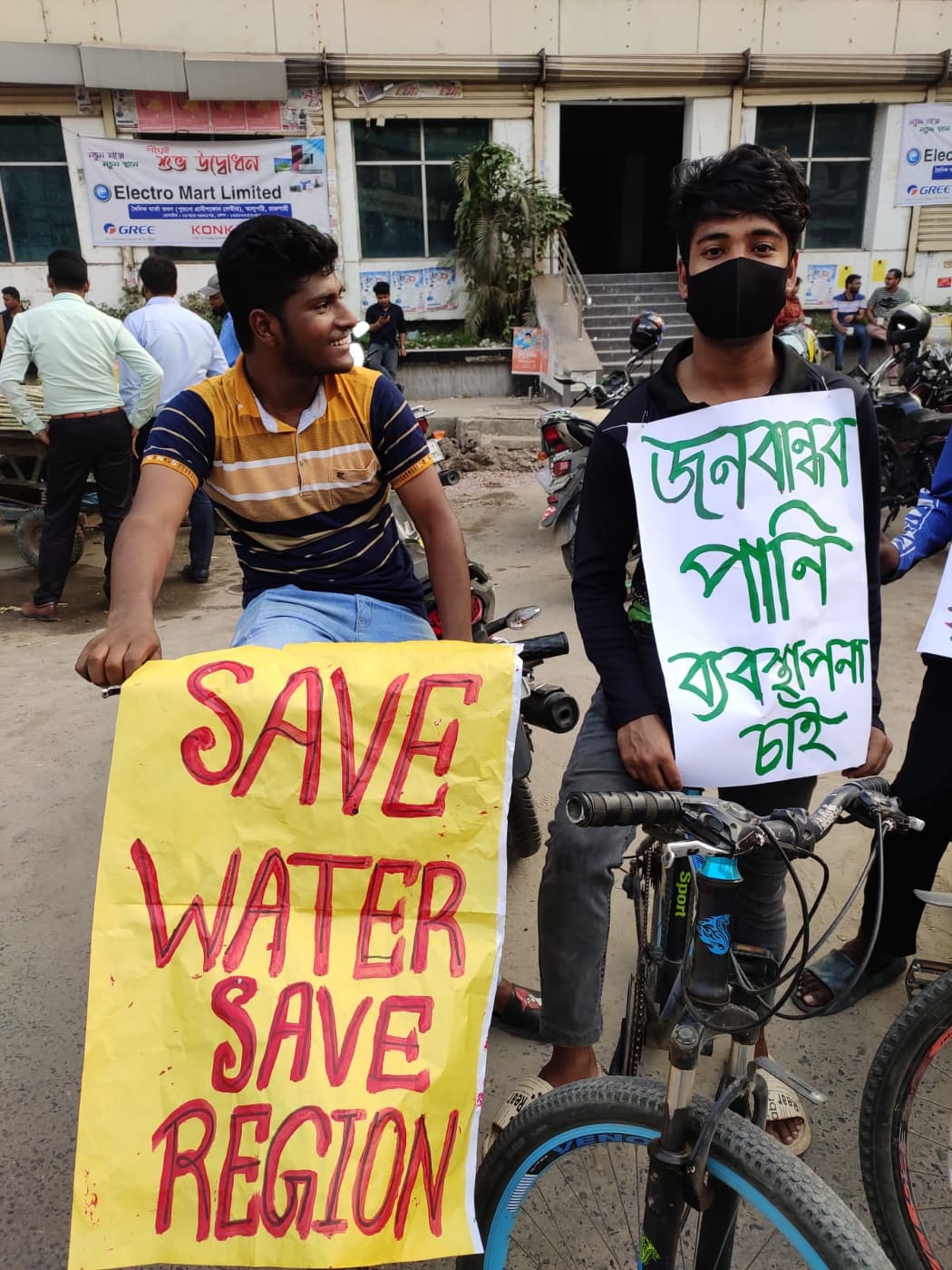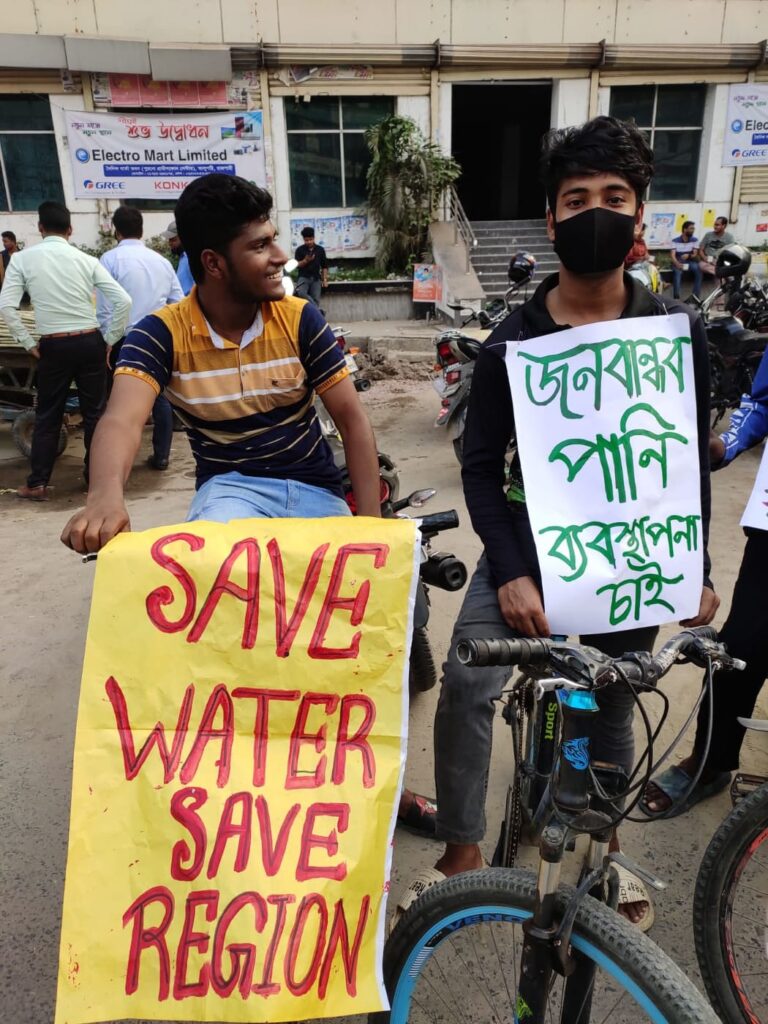Shahidul Islam from Barind region.
Water is an unavoidable natural resource for the survival of all life forms including humans. It’s not possible to spend any single day without water. Water is a universal rights of all. But the pollution of surface water, excessive extraction of underground water and encroachment of water bodies have created immense water crisis in the world. However, Barind Tract is a drought prone area in Bangladesh. The region faces water scarcity every year which makes life miserable. There is an accusation by the marginal communities that they are deprived from their rights to water and existing distribution system. Due to scarcity of water and existing discrimination in water distribution the marginal communities have counted huge loss in food production and suffer in their day to day life.

Nonetheless, in order to protest against the discrimination in water distribution and encroachment of water bodies and pollution of surface water sources a cycle-chain has recently taken place to demand effective implementation of management policy to increase the use of surface water by reducing the pressure on groundwater in the drought prone Barind region and to prevent water sharing inequality including protection of natural reservoirs. BARCIK and local youth organizations arranged the cycle-chain.
Young cyclists from Zero Point Six GRZ, a young cyclist team from Rajshahi, participated the event. During the event the youths circled the main roads of Rajshahi metropolis. Banner festoons emblazoned with various slogans demanded that development activities be carried out by giving priority to the views of the people in tackling water wastage, water distribution inequality and combating drought in the Barind region. Zubair Hossain, President of Zero Point Six GRZ, Amir Hossain Ullas, Head of Cycle Young Management, Masum Billah, Head of Cyclist, Md. Rafi and Shahidul Islam of BARCIK spoke in the event.

Regional coordinator of BARCIK in Rajshahi, Shahidul Islam, said, ‘The water crisis is increasing day by day in the drought prone Barind region, water-centered co-cultural aspects are getting lost due to the scarcity of water and discrimination in water distribution. If such discrimination is not addressed, social violence in the region is likely to increase in near future. He went on saying, there have been media reports regarding violence in the region which took place based on water scarcity and discrimination in water distribution.’
It is to mention that recently two l indigenous farmers committed suicide in Godagari upazila of Barind region due to they did not get water to irrigate their crop lands. Apart from this, various forms of social violence are frequently taking place in different villages of the Barind region over the distribution of drinking water including irrigation water.
Translated by Silvanus Lamin

